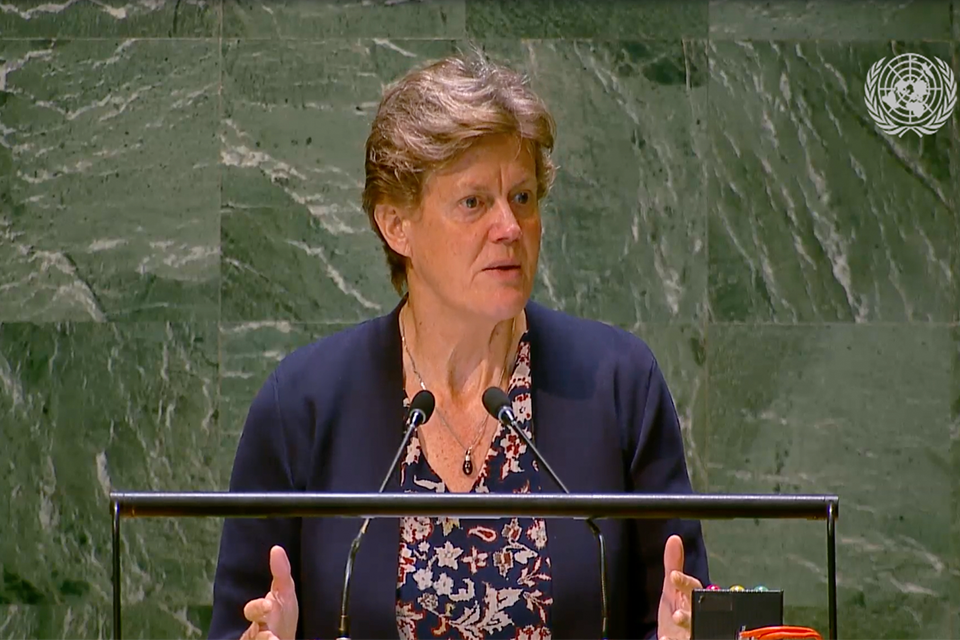The detonation of even a single nuclear weapon in space could destroy a significant proportion of satellites in orbit around Earth: UK statement at the UN General Assembly
Statement by Ambassador Barbara Woodward at the UN General Assembly debate on the Outer Space Treaty.

On 24 April, the Security Council voted on a resolution tabled by the United States and Japan, which reaffirmed our commitment to the Outer Space Treaty. Thirteen Member States voted in favour. One, the Russian Federation, used its veto.
Outer space belongs to all humankind and space technologies are critical to our daily lives. From using maps and checking the weather on our phones, to international shipping and large-scale disaster risk reduction programmes, the far-reaching applications of space technologies are embedded in all of our economies.
For this reason, we need to protect and regulate the safe use of space, while taking appropriate steps to prevent it becoming the backdrop of the next arms race.
To that end, this draft resolution would have reaffirmed the existing obligation not to place nuclear weapons in orbit around the Earth. It also called on states not to develop nuclear weapons specifically designed for such purposes. After all, if states intend, as they must, to comply with the Outer Space Treaty, they shouldn’t be preparing to breach it.
The detonation of even a single nuclear weapon in space could destroy or permanently damage a significant proportion of satellites in orbit around Earth. The resultant radiation and debris would render many orbits unusable for a very long time. There would be highly disruptive and possibly life-threatening consequences for those essential applications, maps, weather, risk-monitoring, which would affect all states, not least developing nations.
The UK therefore voted in favour of this resolution.
There was nothing in this resolution that any law-abiding state committed to peace and the prevention of an arms race in outer space could reasonably object to.
And yet Russia did.
This is not the first, but the second draft Council resolution on nuclear non-proliferation which Russia has vetoed in just one month.
Russia vetoed the DPRK Panel of Experts’ mandate – despite, or rather, because of the Panel’s proven track record of exposing DPRK’s dangerous nuclear and missile programmes, in violation of Security Council resolutions.
Russia’s actions cannot be interpreted any other way. They are seeking to undermine the global non-proliferation architecture, and this should be of grave concern to us all.